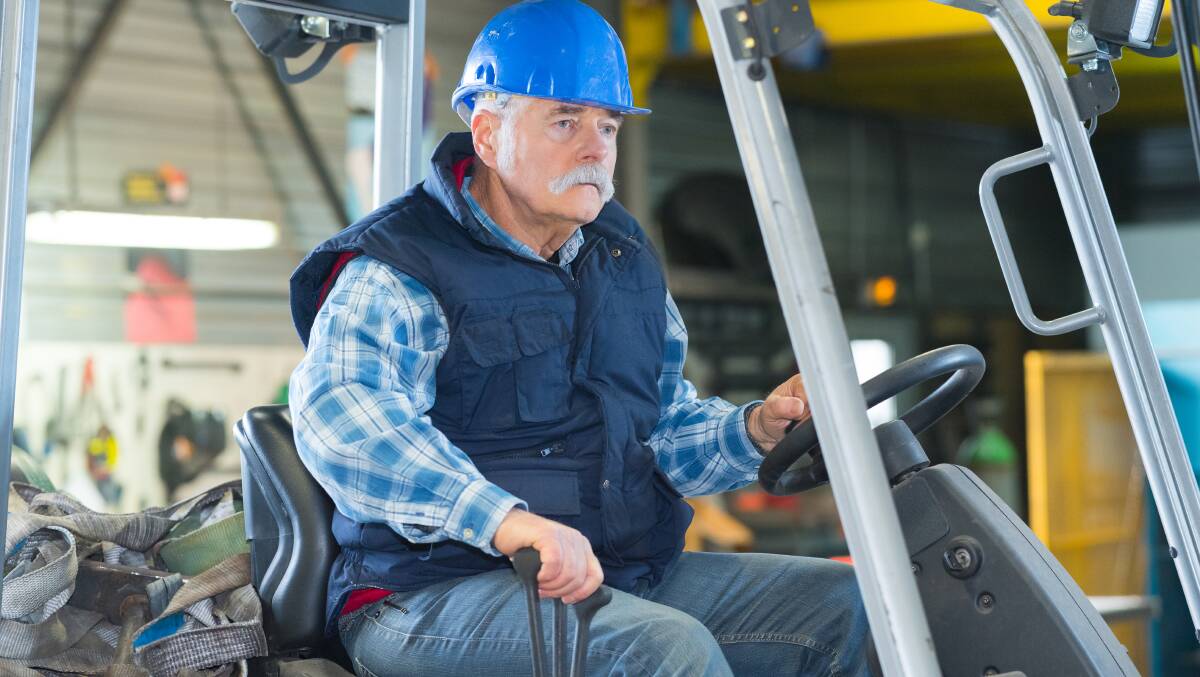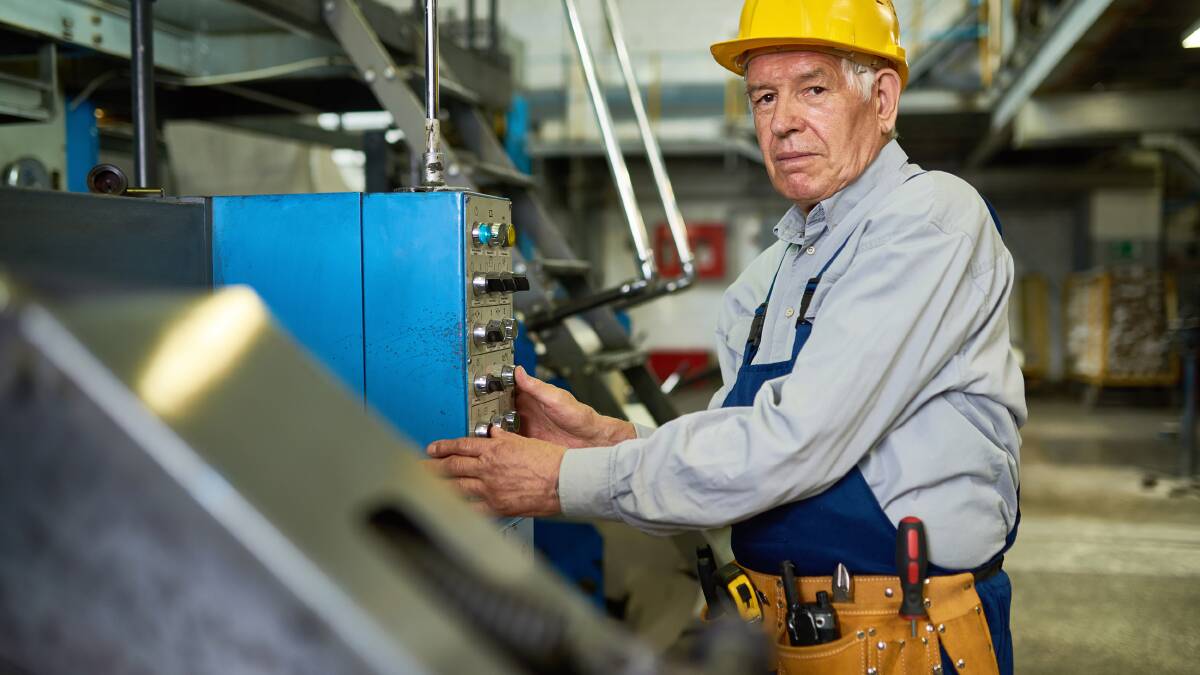
Seniors advocates have added their voices to the outcry from older Australians protesting the increase of the age of eligibility for the pension which went from 66.5 years to 67 years on July 1.
Create a free account to read this article
$0/
(min cost $0)
or signup to continue reading
But the increases may not be finished - with calls from academics to continue raising the age over time to 70 years to help combat the increasing worker shortage as the population ages and birthrates fall.
The pension eligibility age has gone up by six months every two years since July 2017. In the 2014 Federal Budget the Liberal government unveiled a plan to increase the pension age to 70 years by 2035, a proposal which was later abandoned by the Morrison government which capped the increases to 67 years, in the run-up to the 2019 election.
Macquarie University statistician Professor Hanlin Shang and Monash University Professors Rob J. Hyndman and Yijun Zeng have released a report recommending the pension age should be raised to age 70 by the year 2050.
"Less people in the working group and more in retirement will make the old age dependency ratio higher. What this means is there is less working people to support elderly people. And with more elderly people in the population, this will create a burden for the government pension system," Professor Shang was quoted in The Macquarie University Lighthouse.
Professor Shang said Australia's low birth rate is one of the key factors impacting the number of workers into the future. These are the workers who will sustain an aging population, he said.
Earlier this year the French government announced it would increase the pension age in that country from 62 years to 64 years triggering mass protests with almost one million people taking part in strikes and riots.
The Senior received several calls about the July 1 pension age increase.
Max finds it tough on the dole
Max (who asked that his full name not be used) is a 66-year-old former concreter who lives in northern NSW. He contacted The Senior this week to say although he knew the pension age was going up, it still rankled.
Max had a car accident three years ago which resulted in him injuring his back and having hip surgery. He finds concreting too hard for him now. "I've got to wait another eight months before I can go on the pension and it's really tough living on the dole," he said.
"It's almost impossible for me to get a job - I've done a bit of light casual work, but that's really dried up and I'm left in such pain at the end of a day when I do work, not to mention I often lose money from my JobSeeker that it's barely worth it and all the reporting to Centrelink is also a nightmare. I tried to get a disability support pension after my accident but that's really hard and I got knocked back.
"I'm a single man and I started work when I was 16. JobSeeker is not a living wage and I think its wrong that someone like me who has worked nearly all his adult life but finds it hard to work now, can't get the pension."
Max said he had been dipping into his small superannuation balance to help make ends meet since he turned 65.
"I've heard talk about them raising the pension age to 70 - well that may be ok for a fella in a cushy office admin job, but try concreting, or roofing or bricklaying or just being on your feet all day when you're 67 or 69. It's a joke - and that's if you can get a job," he said.

Pat's worn out
Pat is a 65-year old aged care nurse from Port Augusta. She also didn't want her full name used as she's worried how her employers would react.
Pat told The Senior that she was disappointed the pension age had gone up as it would mean she had to stay in work even longer.
"I can't wait to retire," she said. "I've worked in aged care for more than 20 years, at the moment I'm in a secure dementia unit, and I'm worn out physically and mentally. I own my own home with a bit of mortgage left to pay, and just need to get the pension, then with my superannuation I will be able to live comfortably but not extravagantly."
It can also be difficult for older workers to get a job if they are made unemployed. Many report being knocked back for jobs because of rampant ageism among much younger recruiters.
I've heard talk about them raising the pension age to 70 - well that may be ok for a fella in a cushy office admin job, but try concreting or roofing or bricklaying or just being on your feet all day when you're 67 or 69. It's a joke - and that's if you can get a job.
- Max from northern NSW
The Australian Seniors report Ageing in the Workforce 2021 showed older workers felt undervalued, underutilised, under-recognised and underpaid in working environments which value youth over experience and maturity.
Endemic workplace ageism remains the toughest challenge for older workers who feel they miss out on promotions and opportunities and find it harder to have their voice heard in planning and decision making.
For older job seekers living in regional and rural area, the situation can be particularly difficult because of the shortage of non-physically demanding work.
I've worked in aged care for more than 20 years, at the moment I'm in a secure dementia unit, and I'm worn out physically and mentally. I own my own home with a bit of mortgage left to pay, and just need to get the pension, then with my superannuation I will be able to live comfortably but not extravagantly.
- Pat, 65-year-old aged care nurse from South Australia
National Seniors Australia chief advocate Ian Henschke said raising the pension to 67 would be tough for some, especially for those who have not accumulated adequate savings and rely on this payment as a sole source of income.
"Not everyone is able to keep working into their late sixties, especially those who do physical labour. The most common reason for forced retirement is poor health. Age discrimination is another factor people may not be able to keep working."
Only someone who's worked in an office
When the Liberals first mooted raising the pension age to 70, National Seniors was particularly vocal in the nationwide backlash.
A popular slogan at the time was: "Only someone who's worked in an office their whole life would think you can work until you're 70!"
Mr Henschke disputes Professor Shang and his colleagues predictions saying that the future increase in the numbers of much better superannuated retirees would reduce the demand on the pension system.
The most common reason for forced retirement is poor health. Age discrimination is another factor people may not be able to keep working.
- Ian Henschke, National Seniors
"Professor Shang and his team should read, or hopefully re-read, The Age Pension in the 21st Century by 2018 Actuary of the Year, Michael Rice," said Mr Henschke.
"He (Michael Rice) revealed the cost of the age pension as a per centage of GDP will fall, not rise in the decades to come. There will be far fewer full pensioners, and far more part pensioners and self-funded retirees. The "burden" simply won't be there. The pension was 2.9 per cent of GDP when Peter Costello's 2002 Intergenerational Report predicted it would grow to 4.6 per cent of GDP by 2042. But it was it was just 2.7 per cent of GDP five years ago, and Rice Warner projected "expenditure to fall to 2.5 per cent of GDP by 2038."
Mr Henschke said National Seniors rejected calls for raising the age to 70 on both fiscal and social policy grounds.
"Many people exit the workforce because of ill health. We should consider a Canadian style system where you can opt to get the pension earlier but get a bit less."
The best way to tackle declining workforce participation was to provide incentives to those who choose to work longer such as the Let Pensioners Work campaign which calls for a reduction in the income test taper rates to allow older workers to retain more of their pension if they continue working, he said.
Many people exit the workforce because of ill health. We should consider a Canadian style system where you can opt to get the pension earlier but get a bit less.
- Ian Henschke
At the moment the work bonus allow pensioners to earn $7800 a year (through work) before the pension is affected, however there is currently a temporary extra $4000 work bonus until the end of 2023 when the government says it will reset to $7800 again.
The Let Pensioners Work Campaign would be fairer than raising the pension age because it rewards people who want and need to work, said Mr Henschke.
"Pensioners who chose to work would benefit from extra income and their participation would also help the economy. If you are on a pension, and you want to keep working it'll be a win for the economy, it'll be a win for the pensioners, and it will be a win for the government."
A National Seniors poll of more than 2000 people has shown just 7 per cent support for a move to 70, 45 per cent are fine with 67 and 46 per cent want the pension age pushed back to 65.
One size fits all
Seniors' advocacy organisation Combined Pensioners and Superannuants Association believes there will be a push to increase the age pension further.
"The problem with the Australian pension age is that it's a one-size fits all," said policy manager Paul Versteege.
"Obviously, people who have worked strenuous manual jobs may not be able to stay in those jobs until they're 67, or even 65. A floating pension age, which varies according to years spent in various categories of work, goes a long way to address that."
Last year the Australian Greens announced a plan to return the pension age to 65.
No one should be forced to work forever
"Nobody should be forced to work forever in this country, and nobody should retire into poverty," said party leader Adam Bandt.
"There is a poverty crisis amongst older Australians, and it's worse for older women, who are the fastest growing group facing homelessness.
"Older people who have worked in minimum wage jobs and in manual labour are being forced to look for work instead of enjoying the retirement they deserve."


